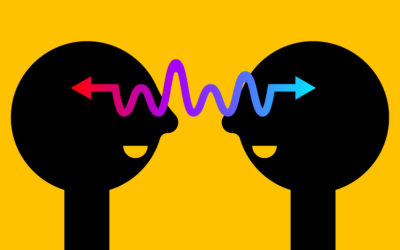Quick Hits
Daily brief research updates from the cognitive sciences
Making fast and accurate decisions is the goal right?
Right. But we know from research that there is a speed/accuracy trade off i.e. the faster you make a decisions the more it is likely to be inaccurate.

And what has dopamine got to do with this – I thought dopamine was a reward chemical also known for the little dopamine “hits” on social media.
Yes, dopamine is related to reward – as you mentioned particularly with reward learning i.e. you do something and get a reward – in the classic rat experiments they get something to eat.
But dopamine is also involved in movement – Parkinson’s is also related to dopamine and L-Dopa the common Parkinson’s medication simply boosts dopamine. Dopamine is also considered one of the key motivation chemicals.
Ok, and what did these researchers do?
The researchers from the University of Cologne in Germany had participants (humans not rats that is!) do various computer-based reward learning tasks. They did this under various conditions with L-Dopa for example, to boost dopamine, or with placebo.
And what were the results?
By using these computer-based learning scenarios they were more accurately able to measure responses and accuracy. And indeed they noticed that dopamine did increase this speed vs accuracy divide. Meaning that dopamine increases decision-making speed but at the expense of accuracy.
Ummm that’s kind of not the best thing then!
Yes, dopamine motivates and drives action, and in this scenario it increased decision making speed. But that may not necessarily be a good things if accuracy loses.
But if you have trouble making decisions then dopamine might help?
We’re a long way from using supplements to improve decision making despite what some “biohackers” may claim. Sure, for those who can’t make decisions and for some forms of ADHD a dopamine boost may help ability to make or get to decisions, which could be very useful. But for most of us that is not the case.
And a reminder to slow down sometimes to increase accuracy?
Yes, indeed!

Andy Habermacher
Andy is author of leading brains Review, Neuroleadership, and multiple other books. He has been intensively involved in writing and research into neuroleadership and is considered one of Europe’s leading experts. He is also a well-known public speaker, speaking on the brain and human behaviour.
Andy is also a masters athlete (middle distance running) and competes regularly at international competitions (and holds a few national records in his age category).
Reference
Karima Chakroun, Antonius Wiehler, Ben Wagner, David Mathar, Florian Ganzer, Thilo van Eimeren, Tobias Sommer, Jan Peters.
Dopamine regulates decision thresholds in human reinforcement learning in males.
Nature Communications, 2023; 14 (1)
DOI: 10.1038/s41467-023-41130-y
More Quick Hits
The Surprising Effectiveness of Coaching in Diminishing Burnout Symptoms
Different areas of the brain are associated with empathy – this new research shows how brain regions synchronise to induce empathic responses.
When Love Overrides Other Needs
Different areas of the brain are associated with empathy – this new research shows how brain regions synchronise to induce empathic responses.
The Negative Social Impact of Dealing with AI in the Workplace
Different areas of the brain are associated with empathy – this new research shows how brain regions synchronise to induce empathic responses.
How the Gut Influences Brain Development in Babies
Different areas of the brain are associated with empathy – this new research shows how brain regions synchronise to induce empathic responses.
Your Brain’s Own Cannabinoid Molecules Calm You Down
Different areas of the brain are associated with empathy – this new research shows how brain regions synchronise to induce empathic responses.
How Seven Habits Boost Brain Function and Lower Depression Risk
Different areas of the brain are associated with empathy – this new research shows how brain regions synchronise to induce empathic responses.






